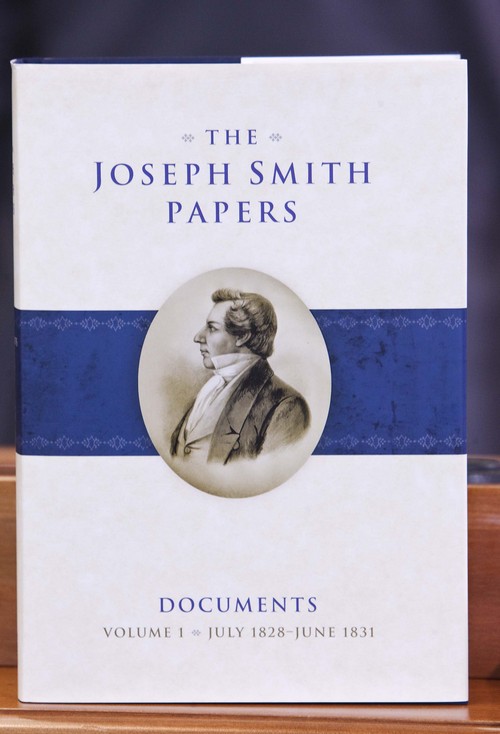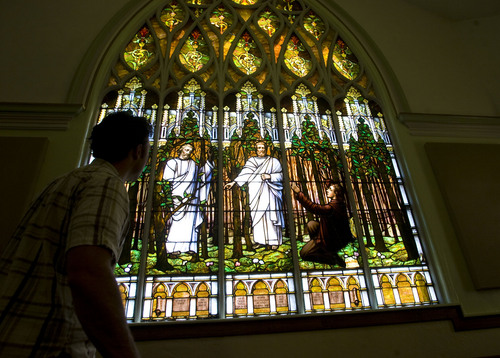This is an archived article that was published on sltrib.com in 2013, and information in the article may be outdated. It is provided only for personal research purposes and may not be reprinted.
The very type of laws used by federal marshals to bust up Mormon polygamous families more than a century ago are now being criticized by a U.S. judge as unconstitutional in a ruling that, if it stands, could allow Utahns to live with plural partners.
What has changed from then to now, observers say, is society's attitude toward sex.
"The state has got to feel a little foolish enforcing these old statutes that are particular to Utah history," says Kathleen Flake, chair of Mormon studies at the University of Virginia. "We no longer criminalize adultery or fornication. Any college dormitory could run afoul of these laws."
Americans today recognize "a zone of privacy around sexual activity," says Flake, who is working on a book about Mormon polygamy. "Why isn't that granted to people who believe themselves to be married to multiple partners as opposed to those who simply have multiple partners?"
Now it is, at least to one judge.
On Friday, U.S. District Court Judge Clark Waddoups declared the cohabitation statutes of Utah's polygamy laws to be unconstitutional.
The ruling had nothing to do with the Utah-based LDS Church, spokesman Cody Craynor said Saturday. "Members of The Church of Jesus Christ of Latter-day Saints do not practice polygamy, regardless of its legal or cultural acceptance."
The LDS Church abandoned polygamy 123 years ago.
Though they are typically called "Mormon fundamentalists," Craynor said, "polygamists and polygamist organizations in parts of the western United States and Canada have no affiliation whatsoever with [the LDS Church]."
The question of polygamy still clings to Latter-day Saints, though, partly because it was once at the heart of Mormon identity and because its defense remains enshrined in the faith's scriptures.
LDS Church founder Joseph Smith first encountered the idea of taking multiple wives, Mormons believe, during his 1831 study of Bible passages that described the polygamous marriages of Old Testament patriarchs such as Abraham, Jacob and David. It became synonymous with Smith's efforts to "restore" the ancient order of priesthood, which he taught became lost through the centuries.
Smith introduced the practice to a small circle of associates in Nauvoo, Ill. Most of them initially resisted, but came to believe it was God's will for them. By the time the Mormon pioneers established their Great Basin kingdom in Utah several years later, plural marriage was an open secret.
But 19th-century American society was morally outraged by Mormons' unconventional marriage practices, leading the federal government to enact laws that stripped polygamists of their right to vote, hold office or own property.
Anti-cohabitation laws gave federal marshals license to catch Mormon men with more than one wife or family.
Such statutes were "designed to unravel the social connections among members of a family – husbands and wives, fathers and children – not just sexual behavior," Flake says. "They would prosecute men for visiting their families or being seen in public with their families."
Unlawful cohabitation was a "common crime in the 19th century, but it was really hard to prove," says Sarah Barringer Gordon, a law professor at the University of Pennsylvania who has studied Mormon polygamy for years. "From 1880 to 1890, only 74 polygamy prosecutions were brought in Utah, and fewer than 50 percent ended in convictions."
Now, the world has changed, she says, and few states still have anti-cohabitation laws.
Despite polygamy's connection to early Mormonism, Nate Oman, a professor at William & Mary Law School, sees no implications for Latter-day Saints in Friday's ruling.
Oman, a Mormon, says he doubts that the LDS Church would ever reinstitute the practice of polygamy.
"I reject the idea that the only reason Mormons don't practice polygamy is because it is against the law," he says. "The church already operates in countries where polygamy is legal and polygamists are not allowed to be baptized, and those members who do practice it are excommunicated."
As recently as March, the LDS Church reiterated its long-standing support of marriage as between one man and one woman.
"The Bible and the Book of Mormon teach that monogamy is God's standard for marriage unless he declares otherwise," the church wrote in a new introduction to its Official Declaration 1, known as "the Manifesto" presented by then-church President Wilford Woodruff.
The document was accepted by the church "as authoritative and binding on Oct. 6, 1890," the new introduction says. "This led to the end of the practice of plural marriage in the church."





